
defending our faith
The training challenge

Chris Sinkinson
Date posted: 29 Aug 2024
One of the great challenges facing the church is how we train the next generation of apologists, pastors, evangelists and other workers.
The needs are great. I know many churches who are looking to recruit pastors but struggling to find someone appropriate. Likewise, how do we train apologists? Many online apologists using YouTube and other forms of social media are self-taught, mean well, but sometimes mislead.

How do we help avoid evangelical civil war and promote real unity?

Andy Mason
Date posted: 17 Jul 2024
We conservative evangelicals need each other. The challenges before us are just too big. We really can’t be what God has called us to be on our own. Our future should really be together. The stewarding of the gospel in our time demands it.
However, our future is also very tied to our ability to get on with one another. We need a very good capacity to navigate internal disagreements. Above all, we need a deep resistance to fracture and splintering. Some might feel that this is unproblematic. After all, we have the gospel of God, and one would’ve thought that that was enough to overcome any difficulties. Things are, though, a bit more complicated.

Reaching ‘satan’s last stronghold’: the fatal mission of John Allen Chau

Milla Ling-Davies
Date posted: 1 Jan 2024
In 2018, American John Allen Chau bribed five fishermen to take him to Sentinel Island in the Indian Ocean. A new documentary tells the story of his ultimately fatal mission to share the gospel with one of the last ‘uncontacted’ tribes who were living there.
‘My name is John. I love you and Jesus loves you. Jesus Christ gave me authority to come to you. Here is some fish!’ These were John’s first words to the North Sentinelese as he approached in his kayak. The two tribesmen strung their bows and moved towards him aggressively.

everyday theology
Evangelicals? Humble?

Michael Reeves
Date posted: 1 Jul 2024
At the heart of being an evangelical is humility. That might seem a laughable claim amid all the empire-building and hubris that has blackened the name of evangelicalism.
And there is something about evangelicalism that can make it a fertile soil for pride. Evangelicals are people of the word, and so learning is in the blood. Yet learning so commonly fosters arrogance.
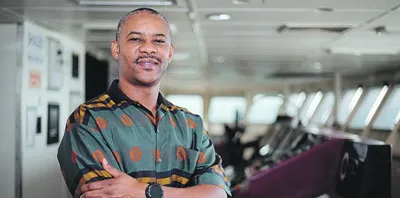
Ten Questions with: Reinhold Titus
1. How did you become a Christian?
I was born into and raised in a nominal Christian home. While attending university, I attended a camp organised by an interdenominational youth organisation. The Lord revealed Himself to me through His Word and Spirit. However, it took me a few days of pondering on the decision and implications of committing my life to Him. I did so one afternoon while in my room, being convicted of His love, sacrifice and my need to know and walk with Him.
2. What lessons have you learnt since that you would want to pass on to a younger Christian version of yourself?
I don’t know if I would do anything any differently. I made mistakes, but that was part of the growth process. I was privileged having people alongside me who took discipleship and mentoring seriously and did it with me when I came to faith. That included the awareness that faith was not only a personal matter but communal and expressed in acts of service.

disability & accessibility
Mission to one of the largest unreached groups in the world

Kay Morgan-Gurr
Date posted: 1 Jul 2024
When we want to reach a people group with the gospel, there are many things we want to be trained in first. We learn the language and the culture. We immerse ourselves in the way of life in order to learn how we can respectfully reach out to them.
Sometimes we take the time to make friends with people from that culture and learn more from them, including the idioms and nuances of their language - you know, the things a classroom lesson won’t teach you and can leave you a little embarrassed and red faced when you say the wrong thing.

everyday theology
Do we downgrade Christ?

Michael Reeves
Date posted: 18 Jul 2024
To be faithful to the gospel means treating Christ and His redeeming death and resurrection as matters ‘of first importance’ (1 Cor. 15:3-4). And yet, through the centuries, Christians have managed to downgrade Jesus, cast Him in their own image, or use Him as the icing to sell some other agenda.
But that is not the evangelical way. Evangelicals look to Scripture to know Christ, and there they find the unique Son of God, exclusive in His glorious identity and completely sufficient as a Saviour.
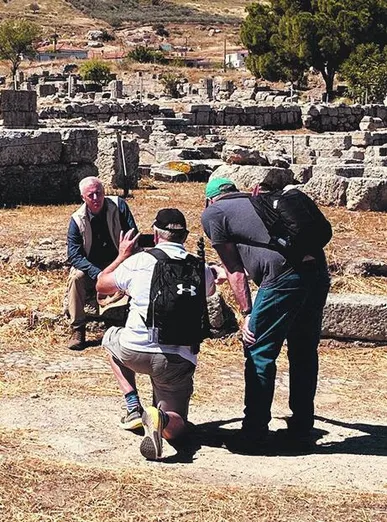
defending our faith
One man’s quiet legacy

Chris Sinkinson
Date posted: 17 Jul 2024
Archaeological excavations at Corinth have revealed a wealth of remains that help us understand the New Testament and also demonstrate that the books were written during the middle of the first century AD. We have just returned from filming there for a new series on the Bible – it really brings the Bible to life.
Corinth was an important travel hub for the Roman Empire, sitting on a narrow neck of the Greek mainland. Nowadays a canal joins the Ionian Sea to the Aegean Sea and saves boats a long journey around the coastline. In Paul’s day, boats were dragged overland along a portage road, remains of which can still be seen.

Keswick 24: God is at work today in the least expected places

Femi Adeleye
Date posted: 17 Jul 2024
Two years ago, I was invited by the Primate of the Church of Nigeria, Henry Chukwudum Ndukuba, to speak at the Joshua Generation International Youth Conference (JGIYC). It was to take place at the National Stadium in Abuja, the capital city of Nigeria.
When I was told 30,000 young people were expected at the five-day event, I had some reservations. To my pleasant surprise, there were about 33,000 young people in attendance, and they were all irrepressible in their response. At least one third committed their lives to serving God’s purpose in their generation.

everyday theology
Showing Christ personally

Michael Reeves
Date posted: 1 Jun 2024
If the desire of the Father, the work of the Spirit, and the purpose of Scripture is to herald Jesus, then so it must be for the faithful preacher.
If the Son’s great and eternal goal is to win for Himself a bride, then His heralds must woo for Him. They are like Abraham’s servant in Genesis 24, commissioned to find a bride for His master’s son. Only when we take our eyes off ourselves and herald Him will we truly glorify God. But when we do that, we may be sure that our preaching will always be evangelistic and, at the same time, always edifying to the saints.

everyday evangelism
What about the Crusades and the Inquisition?

Glen Scrivener
Date posted: 1 Jul 2024
There are any number of ways the subject might crop up, but crop up it will: ‘Religion causes all wars… ’; ‘Christians are hypocrites… ’; What about the Crusades / the Inquisition / conquistadors… ?’; ‘Those Christians really hurt me… ’.
These are different kinds of statements and, as we’ll see, they should be addressed differently – especially that last one. But there’s one thing they all accomplish: they tempt the Christian to dissociate from church.
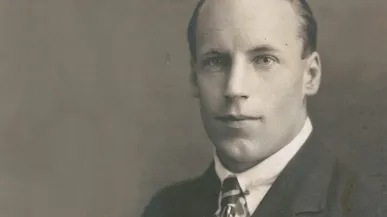
Olympics then and now: What can Eric Liddell teach us today?

Luke Randall
Date posted: 1 Jul 2024
The Olympic Games are almost upon us. They start in Paris on 26 July and countless storylines will inevitably surround what is arguably the world’s biggest sporting event.
Can Novak Djokovic finally claim the gold medal, the one accolade which has eluded him during his glittering career, in what is surely his last realistic chance to win it? Can Tom Daley win a fifth Olympic medal? Can Simone Biles become the most decorated American gymnast in Olympic history? These are just some of the headlines which will fill papers around the globe as the games draw near.

women in mission
Are you still hiding from Halloween?

Ruth Evans
Date posted: 7 Sep 2024
As a family, for years, we avoided Halloween almost entirely. We made the deliberate choice not to get involved with things like Light Parties and, when we moved to our small village, our young children were very content to either just let me answer the door to the many trick or treaters (given the size of our village we have a disproportionately large number) or we would leave treats at the door and go out.
Although most children dressed up cute, we had some local teens who enjoyed dressing up as scarily as they could and my children became quite 'anti' everything Halloween.

How to live in a ‘negative world’
Kenneth Brownell
Date posted: 1 May 2024
Aaron Renn is one of the most perceptive commentators on American evangelicalism as well as the broader culture.
A few years ago, he turned an online post into an article for First Things, an influential American journal on Christian public engagement, in which he described what he called the three worlds of evangelicalism. It became one of the most read and talked-about articles in the Christian world and even the secular media in the United States. He has now turned the article into a book.
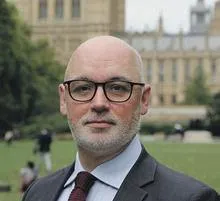
A call for Christian convicted civility
Ross Hendry
Date posted: 13 Jun 2024
'It is a fact of public life that when it comes to religion and politics, the committed lack civility and the civil often lack conviction. And what we need is convicted civility' - Dr. Martin Marty.
I have long believed that this quote holds important truth for our age. In fact, ‘convicted civility’ has become something of a trademark phrase for me. CARE’s staff will exchange knowing looks when I use it in meetings, or whilst doing external media. I believe that Christians should be the preeminent embodiment of ‘convicted civility’ in the public square. Why?
Our goal is to speak truth, and to be people of confident faith; it is to apply our faith to every aspect of life, certain in God’s better story being true and good for every person. But while the gospel will cause offense, we should never seek to be offensive (Romans 1). Put another way, the ends never justify the means for a Christian.
But we do not honour God by ignoring what Jesus taught and how he lived his life. Our goal must also be to present God’s wisdom with humility, love, grace, and respect for others, especially those with whom we disagree. Our deep love for our neighbour means that, yes, we speak truth, but we always seek to do so with grace, and in love (Zech 8:16, Eph 4:15).
It is tempting, when the world’s tactics seem so effective, to justify using those same tactics for what we believe to be virtuous goals. Or we justify certain behaviours by seeking to compare ourselves to Jesus’ righteous anger and straight talking.
But when we adopt the world’s tactics, we disparage our own integrity and sacrifice our sanctification. How we do politics, and how we think and engage with political debates and activities, reveals much about where we place our trust and about who and what we wish to become.
If our goal is to become like the Lord Jesus, how is that achieved by denying every person – especially those who hold different views – with anything less than the dignity of being those who bear the image of God? How can my attitude towards those with whom we disagree not be transformed, when we remember that Jesus loved and died for them as much as me? Our witness is powerful, radical, and distinctive when we seek to live out Jesus’ teaching and example of loving our enemies, not just our friends.
Adopting political ‘dark arts’, suggests that we think the power of the Holy Spirit is insufficient, or that the world’s play book is more reliable than God’s word. When we make our priority winning arguments and seeing our desires, needs, and will win the day, it says something profound about us, that we are trusting in ourselves and in worldly powers more than in God’s plan, provision, and better story.
Looking to model convicted civility is a spiritual discipline that grows our own faith, for as John Stott wrote, 'our love grows soft if it is not strengthened by truth, and our truth grows hard if it is not softened by love.'
It is also our way of seeking the common good – a healthy public square.
Few can deny this is desperately needed. We live in a time when politicians and public figures are threatened and vilified for holding views that are counter cultural, or that disagree with vocal and active groups. Recent surveys suggest that half of us do not trust the government, and only 9% believe that politicians can be trusted to tell the truth. There is a sense that politics is broken, and the public square is toxic. We need light to guide us on a better way.
Our mission must be far greater, broader, and more ambitious than winning debates, or passing laws, important though these are. We are to be Christ-like in how we do politics, not just in what we seek from it.
So, what does Christian convicted civility look like? Well at the very least, it means we are for truth, for beauty, for listening, for respect and dignity; for kindness, conversation and accountability. And we are against falsehood, ugliness, ignorance, hate, abuse, cruelty, division, and self-righteousness.
Although this may sound like motherhood-and-apple-pie – a self-evidently ‘good’ list that no can disagree with – consider how it might look in your personal life and on a national scale.
Do we engage in conversation with those of other viewpoints humbly seeking to learn, or do we talk at others? Do we really love truth, even if it challenges our own standpoint, or do we want to stick to our own echo chamber’s talking points? What role does accountability play in promoting virtue – or is it a concept we only use when calling for those we disagree with to be silenced or sacked?
What does a beautiful public square look like, and what is our role in a beautification process that exemplifies and promotes the fruit of the Holy Spirit?
Christian convicted civility can be one of our greatest and most distinctive offerings to shape the public square for this and future generations. It is neither conditional on reciprocity nor on getting our own way. It is a remarkable, courageous, beautiful act of faithfulness and love for God and for our neighbour.
Find a range of resources to help you think, act, and pray before you cast your vote at CARE’s dedicated election website: engaGE24
Ross Hendry is CEO of Christian Action Research and Education (CARE)

Social media and our children
Glynn Harrison
Date posted: 1 Jun 2024
If you missed all the headlines about the link between smartphones and the epidemic of mental illness in children and young people, then you have not been paying sufficient attention to your social media feed.
The demand for young people’s mental health services currently stands at record levels. It began around 2012, which saw a sharp uptick in rates of childhood anxiety, depression and self-harm. And since then, the graphs have continued their upward march. Even sceptical mental health epidemiologists like me, who prefer to look at data from several different sources before making up their minds, now believe that something serious is happening to our children.

sharing Christ with Muslims
Reflecting the person of Christ – love them!
Hisham E.M.
Date posted: 1 Jun 2024
Many Western Christians see Islam as a threat, but should we not rather consider that the presence of millions of Muslims in Europe is an opportunity for mission work?
Nothing can catch God off guard (Matt.10:29; Isa. 46:9-11). Do you believe this? The Triune God never holds an urgent general assembly or an emergency committee meeting to deal with a situation He did not foresee. He knows what He is doing.

What shapes your faith? The Trinity?

Michael Reeves
Date posted: 1 Apr 2024
‘God is love’ (1 John 4:8). Those three words could hardly be more bouncy.
They seem lively, lovely, and as warming as a crackling fire. But ‘God is Trinity’? No, hardly the same effect: that just sounds cold and stodgy. All quite understandable, but Christians must see the reality behind what can be off-putting language. Yes, the Trinity can be presented as a fusty and irrelevant dogma, but the truth is that God is love because God is a Trinity.

What made Jesus tick? What does it show?
Andrew Nicholls
Date posted: 1 Mar 2024
Have you ever watched someone be far, far more loving than you, and wondered how they do it?
I can think of a lady who, in caring for her husband with worsening dementia, showed endless patience, day after day, hour after hour, minute after minute, helping him with the same ordinary little things, over and over and over again. I never saw her cross, or even a little irritated at her husband for his inability to do the simplest things or to remember anything from one minute to the next. I often wondered how I would be in a similar situation, and I’m pretty sure I would soon be irritated. Her beautiful character was a mystery to me – how did she do it? What made her tick so much better than me?
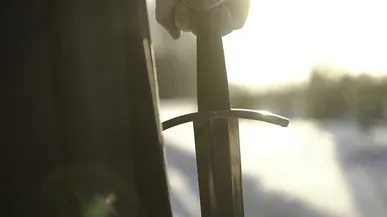
a Jewish Christian perspective
‘Are you for us or our enemies?’ Joshua 5:13

Joseph Steinberg
Date posted: 1 May 2024
Joshua entered the boundaries of Jericho at the start of Israel’s move into Canaan after the Exodus and 40 years of desert wanderings. There seems to have been a misunderstanding about the nature of what God was seeking to do – using Israel to eradicate sin from the land and establish a kingdom of righteous true-God worshippers.
It is no accident then that Joshua meets a man with a sword drawn in his hand. ‘Are you for us or our enemies?’ The man exclaims ‘No!’ He is for neither and reveals that he is none other than the ‘Commander of the LORD’s army’. Joshua, realising that he was standing before the Lord God, fell face down to the ground in reverence.
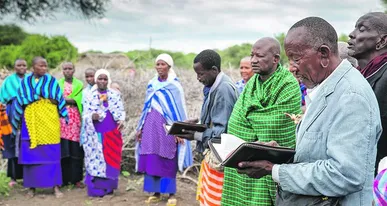
What is the value of running intensive preaching training weeks cross-culturally?
Neil Watkinson
Date posted: 1 May 2024
Having been involved in short intensive weeks of preaching training for pastor-preachers and Bible teachers in Africa and Asia for the last 17 years – six of them based in SE Asia with Crosslinks – it’s been good to reflect on the question: ‘Of what value are these – do they not simply run the risk of cultural imperialism, even in preaching style?’
Local churches across the globe are growing without us, as Christ is proclaimed and the gospel bears fruit. So why do such Bible teaching and preaching training?
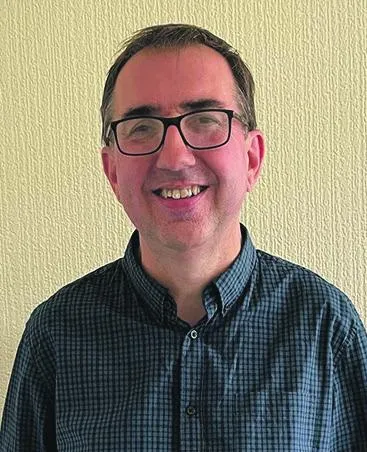
Ten Questions: Obedience and tribalism
William Wilson
1. How did you become a Christian?
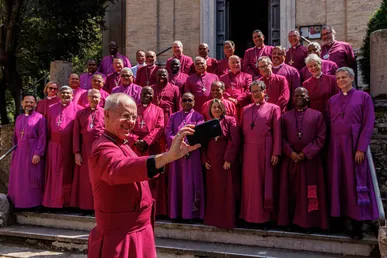
'Intense discussions' as Anglican Primates gather in Rome

Rebecca Chapman
Date posted: 1 May 2024
As I write, humid and thundery showers are predicted in Rome, Italy, as the Primates of the Anglican Communion reach half-time in their historic meeting.
Senior archbishops, presiding bishops, and moderators from churches across the globe have gathered for what we are told will be a time conceived as a pilgrimage. They will pray and study the book of Acts, visit holy sites in Rome, and reflect together about the mission and witness of the Church in the world.

everyday evangelism
Should we ‘forget church, and just look at Jesus’?

Glen Scrivener
Date posted: 1 May 2024
In evangelism Christians have an incredible asset which too many think is a liability: the church.
Last month we considered the advertising campaign ‘He Gets Us’, and its tendency to pit a compassionate Jesus against His judgmental people. But it happens in personal conversations too. The failures of Christ’s people might come up, and the strong temptation can be to throw the church ‘under the bus’.